A hundred years of ostranenie
readings of, in and with Viktor Šklovskij's founding word of modern literary theory

Un village suisse au bord de la mer Noire
Chabag, matériaux inédits
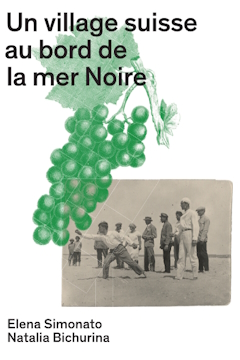
En 1822, sept familles viticoles suisses quittent les bords du Léman pour s’installer au Liman de Dniestr, non loin d’Odessa, au bord de la mer Noire. Territoire de l’empire Russe à cette époque, le village de Chabag deviendra par la suite roumain, puis soviétique, et aujourd’hui ukrainien (Shabo). Dans cet ouvrage, le lecteur découvrira son histoire et sa vie quotidienne à partir de plusieurs documents inédits: des lettres oficielles et privées, des albums de familles, ainsi que certaines interviews avec les personnes qui sont né·e·s à Chabag et qui se sont refugié·e·s en Suisse dans les années 1940.
Freud's emissaries II
the transfer of psychoanalysis through the Polish intelligentsia to Europe 1900-1939
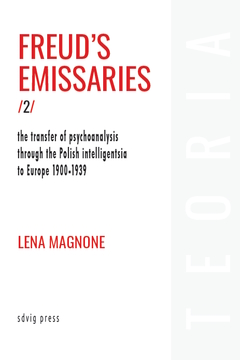
Aiming to recount how psychoanalysis reached the Polish intelligentsia in the first decades of the twentieth century, this books follows the life trajectories of a few Polish-Jewish disciples of Freud who played a significant role in this process: Ludwig Jekels, Helene Deutsch, Beata Rank, Eugenia Sokolnicka, Gustav Bychowski, Zygfryd Bernfeld, the sisters Berta and Stefania Bornstein, and a handful of other individuals. None of them were born in Poland – the state had disappeared from Europe’s map at the end of the eighteenth century, when, in three successive partitions, the territory of the former Polish-Lithuanian Commonwealth was divided between the Kingdom of Prussia, the Habsburg Empire and the Russian Tsarist Empire. Only one of these protagonists became a citizen of the Second Polish Republic when it was created in 1918. Some were key to the transfer of Freudian thought to other countries, such as Sweden or France. Most left Europe in the 1930s and established themselves in the United States, contributing to the postwar cultural success of psychoanalysis. It is thus a narrative of Jewish migrations and, to the same extent, a reflection on traveling concepts. The book follows its protagonists in their upward social mobility and subsequent exile and uprooting. It also examines how a subversive emancipatory idea born in the turmoil of fin-de-siècle Vienna transformed into an American therapeutic method, deprived of all political scope
Freud's emissaries I
the transfer of psychoanalysis through the Polish intelligentsia to Europe 1900-1939
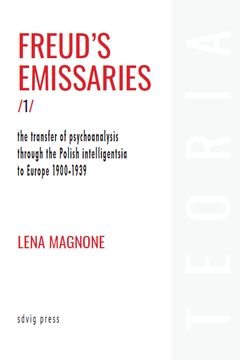
Aiming to recount how psychoanalysis reached the Polish intelligentsia in the first decades of the twentieth century, this books follows the life trajectories of a few Polish-Jewish disciples of Freud who played a significant role in this process: Ludwig Jekels, Helene Deutsch, Beata Rank, Eugenia Sokolnicka, Gustav Bychowski, Siegfried Bernfeld, the sisters Berta and Stephanie Bornstein, and a handful of other individuals. None of them were born in Poland – the state had disappeared from Europe’s map at the end of the eighteenth century, when, in three successive partitions, the territory of the former Polish-Lithuanian Commonwealth was divided between the Kingdom of Prussia, the Habsburg Empire and the Russian Tsarist Empire. Only one of these protagonists became a citizen of the Second Polish Republic when it was created in 1918. Some were key to the transfer of Freudian thought to other countries, such as Sweden or France. Most left Europe in the 1930s and established themselves in the United States, contributing to the postwar cultural success of psychoanalysis. It is thus a narrative of Jewish migrations and, to the same extent, a reflection on traveling concepts. The book follows its protagonists in their upward social mobility and subsequent exile and uprooting. It also examines how a subversive emancipatory idea born in the turmoil of fin-de-siècle Vienna transformed into an American therapeutic method, deprived of all political scope.
Neo-Kantianism as an entanglement of intellectual cultures in Central and Eastern Europe
Neukantianismus als Verflechtung von Wissenskulturen Mittel-und Osteuropas
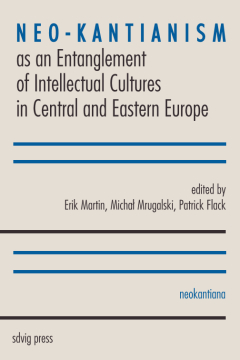
The present volume, which constitutes the proceedings of the eponymous conference held in May 2019 at the Polish Institute in Berlin, offers a series of detailed insights into the profoundly networked forms and practices of Neo-Kantian philosophy. Although far from exhaustive, the materials and perspectives gathered here establish beyond doubt that the scope and impact of Neo-Kantianism in the landscape of European culture and ideas can only ever be properly understood if one takes into account not just its main German “schools” (Marburg, Baden) but also its inter-disciplinary and cross-cultural dissemination in other contexts, not least in Poland and Russia. Conversely, this volume also underscores how the broad and diverse influence exerted by Neo-Kantian philosophy in its relatively long period of dominance constitutes a crucial element in the dynamics and evolution of European ideas and intellectual cultures, in particular the fundamental methodological break with the positivist traditions of the 19th century and the slow rise of “new” human sciences or Geisteswissenschaften (anthropology, cultural-historical psychology, linguistics, literary theory, sociology, cultural studies) around 1900.
Psychologie in Wien
Sozial- und Theoriegeschichte des Wiener Psychologischen Instituts 1922-1938

Essais et communications sur le langage
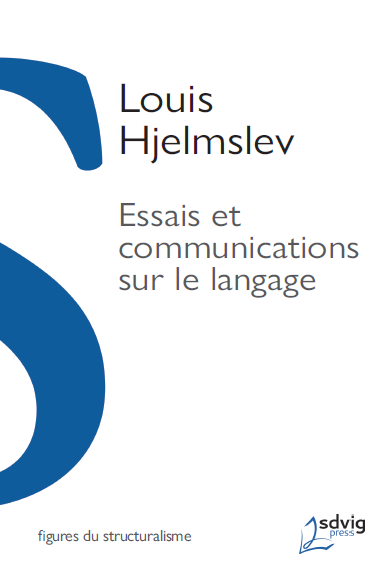
La première partie de ce volume recueille les interventions et les discussions dans lesquelles Hjelmslev figure comme rapporteur lors de séances du Cercle linguistique de Copenhague, ou lors d’autres colloques, et dont les minutes sont éparpillées dans différents Bulletins et Acta. On y trouvera aussi la reproduction des débats qui ont suivi les communications ayant été publiées par la suite sous forme d’articles. La deuxième partie est constituée de contributions plus longues, qu’on peut légitimement qualifier d’articles. Certaines parties de ce contingent ont déjà été publiées en italien ou en anglais : la traduction intégrale en français en a été réalisée ici, afin d’obtenir une uniformité générale.
Karl Bühler und das Wiener Psychologische Institut
Dokumente und Fundstücke

Fenomenologia e tecnica
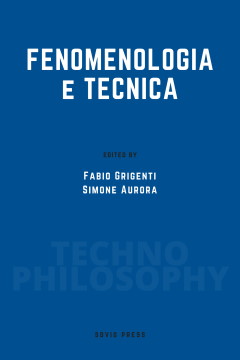
I saggi che qui presentiamo sono in gran parte il prodotto della ricerca condotta da giovani studiosi del dipartimento di Filosofia, Sociologia, Pedagogia e Psicologia applicata (FISPPA) dell’Università degli studi di Padova. Si tratta, come si vedrà, di “primi lavori”, i quali uniscono un tratto di freschezza acerba a una ispirazione coraggiosa e originale. Li abbiamo voluti pubblicare uniformandone lo stile il meno possibile, allo scopo di conservare quella duplicità che è propria del pensiero che inizia e che opera prima di ogni preoccupazione sistematica.
Theodor Lipps (1851-1914)
psychologie, philosophie, esthétique, langage/psychology, philosophy, aesthetics, language
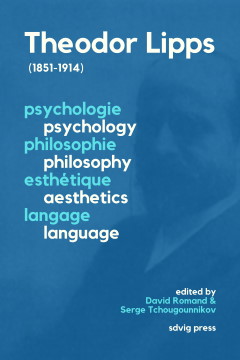
Le présent volume, qui regroupe les contributions de sept auteurs, est le premier ouvrage à proposer une réflexion d'ensemble sur les multiples aspects constitutifs de la pensée de Theodor Lipps (1851-1914). Figure majeure de la philosophie, de la psychologie et de l'esthétique allemandes de la fin du XIXe siècle et du début du XXe siècle, Lipps est l'auteur d'une œuvre étonnamment abondante et variée dont l'importance et la portée historiques apparaissent aujourd'hui singulièrement minorées. C'est donc non pas seulement au développement mais au renouvellement des études lippsiennes que le présent volume entend contribuer, son objectif étant ici d'offrir au lecteur une vision plus ample et plus diversifiée, plus personnelle aussi, de la pensée de Lipps, en s'intéressant à de nombreux pans de son œuvre restés jusqu'ici injustement négligés et s'efforçant de les reconsidérer à la lumière d'une grande variété de contextes.
Literature from literature
Essays on translation
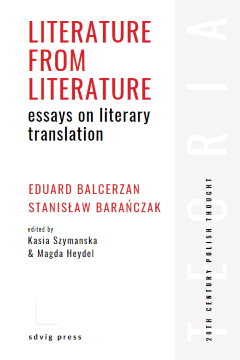
The following selection of essays by Balcerzan and Barańczak touches upon the poetics of literary translation in many ways, questioning for example its special mode of being, its multiplicity and polyphony, its potentially polemical and dissociative aspect, its relationship with artistic creation, and the possible methods of approaching its literariness and poetic meaning. These essays represent the fruits of their almost life-long quest for answers regarding translation. Thanks to this volume, international readers can judge for themselves how successful it was and whether it has stood the test of time.
Phenomenological philosophy of language
collected papers
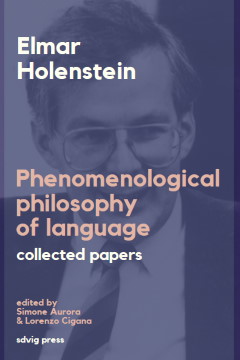
By revealing the "invariants" of Elmar Holenstein's acclaimed contribution to the philosophy of language, the present volume will allow its readers to discover not only a conceptual apparatus that provides effective tools for dealing with contemporary discussions on central issues such as the structure of language, the nature of the sign, the functioning of cognition or the role of perceptual experience, but also a set of original ideas and theoretical proposals that suggest viable solutions to the above-mentioned discussions. All these solutions revolve around a precise philosophical idea or methodological approach, namely phenomenological structuralism, which emerges as a “Gestalt quality” of sorts out of the present collection of papers.
Logische Untersuchungen. Erster Band
Prolegomena zur reinen Logik
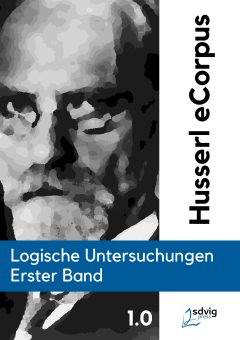
Digital TEI edition of the first volume of the Logical Investigations, based on the 1975 Holenstein edition published as Husserliana XVIII. As part of the version 1.0 of the Husserl eCorpus, which aims primarily to provide a clean textual basis for future uses, the present edition includes no special tagging (e.g. citation, named entities, etc.) or annotations, and has not been revised or reviewed. The pagination of the first two editions (1900 and 1913), as well as the pagination, line breaks and textual annotations of the Holenstein edition have been reproduced.
Writing history – shaping history
of (not only polish) literary studies
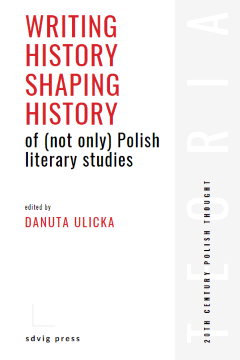
The present volume is a digital re-edition of Volume 47 (2) of the Polish journal Przegląd Filozoficzno-Literacki [Philosophical and Literary Review], published in 2017 with the same title. It brings together noted experts of literary theory and literary history from both within and without Poland.
Rhythmisch-melodische Studien
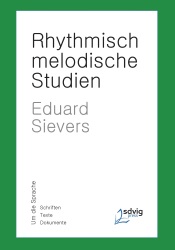
Die Rhythmisch-melodischen Studien (1912) zählen zu den bedeutendsten Werken von Eduard Sievers. Eine besondere Wirkung hatten sie in Russland, wo sie russische Formalisten, wie Viktor Šklovskij, Osip Brik und Jurij Tynjanov, beeindruckten. Unsere Neuausgabe, knapp hundert Jahre nach der Erstveröffentlichung, dient vor allem einem erleichterten Zugang zu diesen oft-zitierten aber schwer verfügbaren und inzwischen selten gelesenen Texten.
Russian formalism
A metapoetics
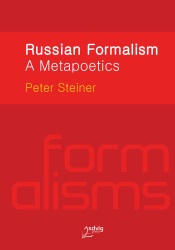
Thirty years after its first publication, Peter Steiner's erudite, thoughtful book remains a classic study of Russian Formalism. His "metapoetic" analysis offers a simple, clear schema for apprehending the unity of action and dynamic configuration of the Russian formalists's program, while fully respecting the diversity of the cluster of theories they put forward. As such, it also serves as one of the best introductions to a movement that still exerts considerable influence on literary study.
Ecrits sur le langage
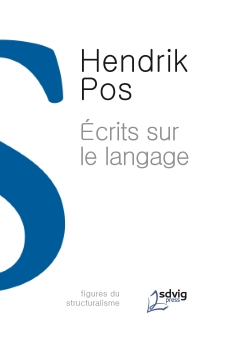
Le présent ouvrage est le premier recueil publié en français d’écrits du linguiste et philosophe néerlandais Hendrik Pos. Les seize textes proposés dans les pages suivantes (en version originale pour la moitié d’entre eux, dans une traduction de l’allemand ou du néerlandais pour les autres) ont été choisis pour représenter la pensée de Pos de manière aussi complète que possible dans son extension diachronique. Thématiquement, une seule facette des travaux par ailleurs très divers de Pos a été prise en compte : ses réflexions sur le langage.